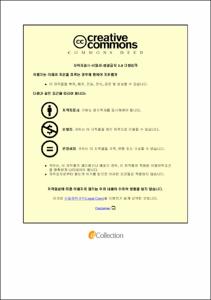DISC 행동유형으로 구성한 팀 기반 학습에서 취업설계 수업의 학습태도, 팀 과제수행, 학습만족도 차이분석
- Alternative Title
- An analysis of difference in team-based learning composed based on DISC behavior patterns on learning attitude, team task performance and learning satisfaction of job strategy class
- Abstract
- 현재 전문대학을 급속한 환경변화 가운데 주로 숙련된 기술자를 양성해왔다. 그래서 전공교육에 치우쳐져 있고 학생들은 스스로 문제를 생각하고 해결하는 능력이 부족하며 학습자가 중심이 되는 교육환경이 만들어 자기 힘든 상황이다. 이런 상황을 극복하기 위해 다양한 교수학습방법 중에서 공동의 목표를 달성하기 위해 팀원들과 상호작용을 하고 문제를 해결하는 팀 기반 학습에 관심을 가지게 되었다. 이에 본 연구는 인간의 행동유형을 4가지로 분류하여 행동을 구분할 수 있는 DISC 행동유형을 검사하여 팀을 구성한 후 팀 기반 학습을 함으로써 각 요인별로 차이분석을 하고자 한다.
첫째, DISC 행동유형으로 구성한 팀 기반 학습에 따라 학습태도는 차이가 있는가?
둘째, DISC 행동유형으로 구성한 팀 기반 학습에 따라 팀 과제 수행성과는 차이가 있는가?
셋째, DISC 행동유형으로 구성한 팀 기반 학습에 따라 학습만족도는 차이가 있는가?
연구대상으로는 부산시에 소재한 K전문대학 4개학과(토목조경, 유통마케팅, 회계, 호텔외식조리) 2학년을 대상으로 하였다. DISC 행동유형으로 구성한 팀과 무작위 팀을 구성하여 두 집단 모두 팀 기반학습을 실시하였다.
본 연구를 통하여 다음과 같은 결론을 얻을 수 있었다.
첫째, 학습태도에서 DISC 행동유형으로 구성한 팀과 무작위 팀은 과목자아개념, 학습습관에서 유의미한 차이를 보였다. 하지만 공부태도에 있어서는 유의미한 차이가 없었다.
둘째, 팀 과제 수행에서 DISC 행동유형으로 구성한 팀과 무작위 팀은 과제, 팀 문항 모두 유의미한 차이를 보였다.
셋째, 학습만족도에서 DISC 행동유형으로 구성한 팀과 무작위 팀은 유의미한 차이가 있었다.
위의 결론을 종합해 볼 때 전문대학 취업설계 교양과목에 관심이 적은 학생들은 대상으로 DISC 행동유형으로 구성한 팀 기반 학습은 학생들의 능동적인 참여를 통해 학습태도에 긍정적인 영향을 주었고 팀 과제 수행 향상과 학습만족도에 긍정적인 영향을 주었다고 볼 수 있다.
The purpose of this study is to analyze the difference of each factor by constructing a team by examining the type of DISC behaviors that divide human behavior into four categories and the conducting team-based learning.
First, is there a difference in the learning attitude based on team-based learning composed of DISC behavior types?
Second, is there a difference in team task performance based on team-based learning composed of DISC behavior types?
Third, is there a difference in learning satisfaction based on team-based learning composed of DISC behavior types?
Currently, junior colleges have trained mainly skilled engineers in rapid environment changes. however, while junior college focuses on educating a major filed of study, the interest in educating general education is very low. so students lack the ability to think and solve problems on their own, and it is hard to create a learning environment that is centered on learners to overcome this situation, we have become interested in team-based learning that interacts with members and solves problems in order to achieve common goals among various teaching and learning methods.
The subjects of this study were civil engineering landscaping, distribution marketing, accounting and hotel catering, four departments of k-college second grade in Busan. DISC behaviors were organized into teams and random teams, and both groups performed team-based learning.
The following conclusions could be gotten through this study.
First, there was a significant difference in the subjects’ self-concept and learning habits between the team composed of DISC behavior type and the random team in the learning attitude. however, there was no significant difference in attitude toward study.
Second, there was a significant difference in the task and team factors between the team composed of DISC behavior type and the random team in the team task performance.
Third, there was a significant difference between the group consisting of DISC behavior type and the random group in the learning satisfaction.
In conclusion, the team based on DISC behaviors positively influenced learning attitudes by actively participating in students with less interest in liberal arts courses, in addition, it can be said that it positively influenced the improvement of team task performance and learning satisfaction.
- Issued Date
- 2019
- Awarded Date
- 2019. 2
- Type
- Dissertation
- Publisher
- 부경대학교
- Alternative Author(s)
- Su-Yeon Shin
- Affiliation
- 부경대학교 교육대학원
- Department
- 교육대학원 교육컨설팅학과
- Advisor
- 원효헌
- Table Of Contents
- I. 서 론 1
1. 연구의 필요성과 목적 1
2. 용어의 정의 6
II. 이론적 배경 8
1. 팀 기반 학습 8
2. DISC 행동유형 16
Ⅲ. 연구 방법 24
1. 연구 대상 24
2. 연구 절차 25
3. 연구수업 설계 및 내용 26
4. 측정도구 33
5. 자료 처리 방법 36
Ⅳ. 연구 결과 37
1. 학습태도 차이 분석 37
2. 팀 과제 수행 차이 분석 42
3. 학습만족도 차이 분석 46
Ⅴ. 논의 및 결론 50
1. 논 의 50
2. 결론 및 제언 55
참 고 문 헌 59
부록 65
DISC 행동유형 검사지 65
학습태도 설문지 68
팀 과제수행 설문지 70
학습만족도 설문지 73
국문초록 75
- Degree
- Master
- Files in This Item:
-
-
Download
 DISC 행동유형으로 구성한 팀 기반 학습에서 취업설계 수업의 학습태도, 팀 과제수행, 학습만족도 차이분석.pdf
기타 데이터 / 616.26 kB / Adobe PDF
DISC 행동유형으로 구성한 팀 기반 학습에서 취업설계 수업의 학습태도, 팀 과제수행, 학습만족도 차이분석.pdf
기타 데이터 / 616.26 kB / Adobe PDF
-
Items in Repository are protected by copyright, with all rights reserved, unless otherwise indicated.